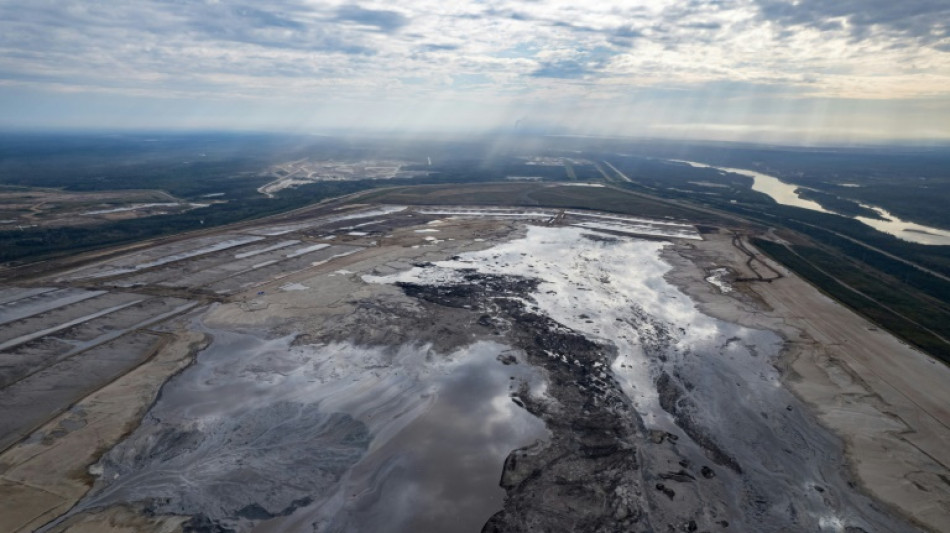
-
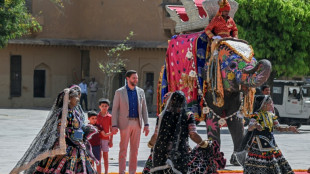 US VP Vance says 'progress' in India trade talks
US VP Vance says 'progress' in India trade talks
-
Ex-England star Youngs to retire from rugby

-
 Black Ferns star Woodman-Wickliffe returning for World Cup
Black Ferns star Woodman-Wickliffe returning for World Cup
-
Kremlin warns against rushing Ukraine talks
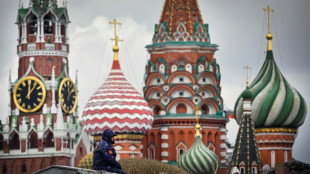
-
 Mbappe aiming for Copa del Rey final return: Ancelotti
Mbappe aiming for Copa del Rey final return: Ancelotti
-
US universities issue letter condemning Trump's 'political interference'

-
 Pope Francis's unfulfilled wish: declaring PNG's first saint
Pope Francis's unfulfilled wish: declaring PNG's first saint
-
Myanmar rebels prepare to hand key city back to junta, China says
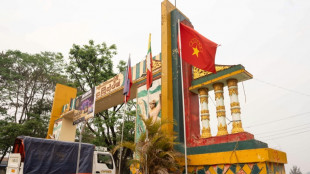
-
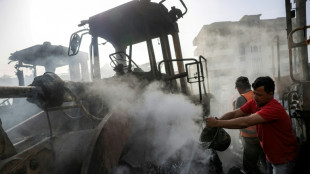 Hamas team heads to Cairo for Gaza talks as Israel strikes kill 26
Hamas team heads to Cairo for Gaza talks as Israel strikes kill 26
-
Pianist to perform London musical marathon

-
 India's Bumrah, Mandhana win top Wisden cricket awards
India's Bumrah, Mandhana win top Wisden cricket awards
-
Zurab Tsereteli, whose monumental works won over Russian elites, dies aged 91

-
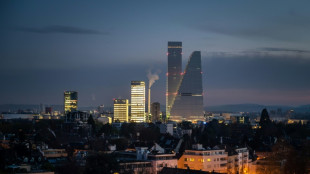 Roche says will invest $50 bn in US, as tariff war uncertainty swells
Roche says will invest $50 bn in US, as tariff war uncertainty swells
-
Pope Francis's funeral set for Saturday, world leaders expected

-
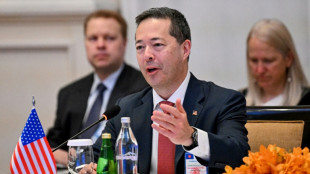 US official asserts Trump's agenda in tariff-hit Southeast Asia
US official asserts Trump's agenda in tariff-hit Southeast Asia
-
World leaders set to attend Francis's funeral as cardinals gather

-
 Gold hits record, stocks mixed as Trump fuels Fed fears
Gold hits record, stocks mixed as Trump fuels Fed fears
-
Roche says will invest $50 bn in US over next five years
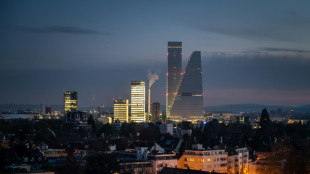
-
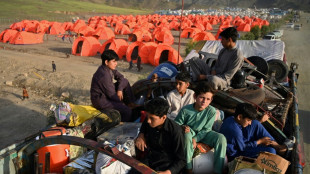 Fleeing Pakistan, Afghans rebuild from nothing
Fleeing Pakistan, Afghans rebuild from nothing
-
US Supreme Court to hear case against LGBTQ books in schools

-
 Pistons snap NBA playoff skid, vintage Leonard leads Clippers
Pistons snap NBA playoff skid, vintage Leonard leads Clippers
-
Migrants mourn pope who fought for their rights
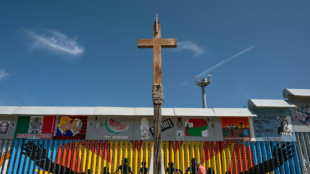
-
 Duplantis kicks off Diamond League amid Johnson-led changing landscape
Duplantis kicks off Diamond League amid Johnson-led changing landscape
-
Taliban change tune towards Afghan heritage sites
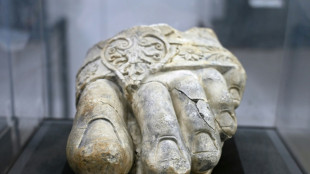
-
 Kosovo's 'hidden Catholics' baptised as Pope Francis mourned
Kosovo's 'hidden Catholics' baptised as Pope Francis mourned
-
Global warming is a security threat and armies must adapt: experts

-
 Can Europe's richest family turn Paris into a city of football rivals?
Can Europe's richest family turn Paris into a city of football rivals?
-
Climate campaigners praise a cool pope

-
 As world mourns, cardinals prepare pope's funeral
As world mourns, cardinals prepare pope's funeral
-
US to impose new duties on solar imports from Southeast Asia

-
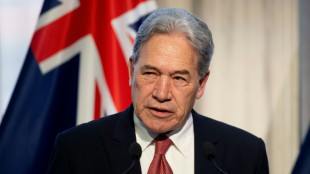 Draft NZ law seeks 'biological' definition of man, woman
Draft NZ law seeks 'biological' definition of man, woman
-
Auto Shanghai to showcase electric competition at sector's new frontier

-
 Tentative tree planting 'decades overdue' in sweltering Athens
Tentative tree planting 'decades overdue' in sweltering Athens
-
Indonesia food plan risks 'world's largest' deforestation
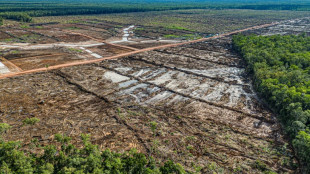
-
 Gold hits record, stocks slip as Trump fuels Fed fears
Gold hits record, stocks slip as Trump fuels Fed fears
-
Trump helps enflame anti-LGBTQ feeling from Hungary to Romania
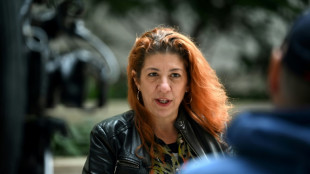
-
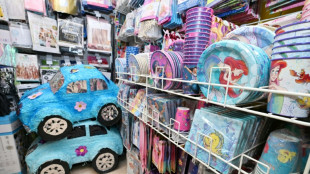 Woe is the pinata, a casualty of Trump trade war
Woe is the pinata, a casualty of Trump trade war
-
'Like orphans': Argentina mourns loss of papal son

-
 Trump tariffs torch chances of meeting with China's Xi
Trump tariffs torch chances of meeting with China's Xi
-
X rival Bluesky adds blue checks for trusted accounts

-
 China to launch new crewed mission into space this week
China to launch new crewed mission into space this week
-
Morocco volunteers on Sahara clean-up mission

-
 Latin America fondly farewells its first pontiff
Latin America fondly farewells its first pontiff
-
'I wanted it to work': Ukrainians disappointed by Easter truce

-
 Harvard sues Trump over US federal funding cuts
Harvard sues Trump over US federal funding cuts
-
2025 U.S. Open Polo Championship Final Concludes American High-Goal Season, Supported by U.S. Polo Assn.

-
 'One isn't born a saint': School nuns remember Pope Francis as a boy
'One isn't born a saint': School nuns remember Pope Francis as a boy
-
Battling Forest see off Spurs to boost Champions League hopes

-
 'I don't miss tennis' says Nadal
'I don't miss tennis' says Nadal
-
Biles 'not so sure' about competing at Los Angeles Olympics


Fort McKay: where Canada's boreal forest gave way to oil sands
The acrid stench of gasoline permeates the air. And the soot coats everything in sight: the trees, the bushes, even the snow in winter. And all day long, explosions send the birds soaring to safety.
At Fort McKay near Fort McMurray in western Canada, in the heart of the country's boreal forest, the pines and the people were long ago cleared out to make way for huge open-pit mines dedicated to excavation of oil sands.
It's one of the biggest industrial projects in the world: as seen from above, the zone is in stark contrast to the vast expanse of green surrounding it. Huge black holes are gouged in the brown earth -- they are giant pools of water.
Then there is the network of roads on which hundreds of trucks drive every day, and the immense factories, with smoke spewing from wide chimneys.
On the ground, the noise is deafening. And it's quite a scene for the uninitiated: in the middle of the huge basins dug to capture the polluted waters stand huge metal scarecrows clad in helmets and security vests.
The ghoulish creatures are designed to scare away millions of migratory birds that arrive every year in this northern part of Alberta province. Adding to the mayhem: airhorns that are used several times a minute.
The mines have made the people left in Fort McKay -- many of them Indigenous Canadians -- very rich. But the installations have also profoundly altered and damaged the land on which their ancestors relied for centuries.
"Everything has changed, everything's destroyed to me now," says 74-year-old Margie Lacorde who lives in the center of town in a house chock full of knick knacks and framed photographs.
The talkative Lacorde, who belongs to the Metis people, is sad to see the parched, yellowing leaves due to drought, and wishes she could still swim in the rivers and gather berries in the forest like she did in her youth.
The hunting grounds are long gone -- the land was sold for industrial use.
"The pollution is killing our nature," Lacorde tells AFP, though she herself worked in the oil industry for years to provide for her family.
She remembers her childhood with a significant bit of nostalgia.
Back then, families gathered snow and melted it to use as drinking and cooking water. Such a thing would be impossible today -- once the snow hits the ground, it's immediately filthy, covered in the dust that filters down from the factories.
- 'Desecrated' -
"We're First Nations and this is our territory that is all being desecrated by the oil industry for the sake of the dollar, money, prosperity," says Jean L'Hommecourt, an environmental activist who took up the fight her parents once championed.
Even if agreements were reached with Indigenous communities to create jobs and protect some natural resources, the ecological impact of mining the oil sands have been so great that the 59-year-old woman says her people are now at risk.
"I lost my prosperity when the industry came in and took over all our lands and our waters and our access to our wildlife... everything that we depend on to sustain our culture has been compromised by industry," she says bitterly.
The area is a far cry from the picture postcard ideal of the Canadian West. There are no crystalline blue waterways or fish-filled rivers here.
Instead, Moose Lake -- sacred to L'Hommecourt's Dene people -- is now only accessible by all-terrain vehicle, a five-hour drive on a road pockmarked by potholes that runs in between the mines.
When she was growing up, L'Hommecourt's family cabin was in the middle of the forest, far away from the noise and bustle. But after the first oil sands mine was built in 1967, development proceeded at a rapid pace.
Today, the active oil sands extraction sites form a chain that is more than 60 kilometers (40 miles) long, hugging the shores of the Athabasca River.
Fort McKay -- population, 800 or so -- is a tiny speck on a map of this industrial complex.
Canada is home to 10 percent of the world's known crude oil reserves -- much of that is found in the oil sands of Alberta.
Every day, nearly three million barrels of crude are extracted from the sands, according to official government data, helping to make Canada the world's fourth largest oil producer, and the primary exporter of crude to the United States.
In all, more than 4,800 square kilometers are used for oil sands mining.
At first, local populations were consulted and their fears were noted, L'Hommecourt says.
"And then they just said okay, well, we collected the information, we collected their concerns and everything else and we'll mitigate with the money," she added.
- Pollution -
Many environmental activists say the impact of the oil industry is so great that the term "ecocide" is not too strong. Beyond the tangible destruction of the boreal forest, there is the massive amount of pollution in the air.
The oil and gas sector accounts for a quarter of Canada's greenhouse gas emissions, according to the latest official figures released this year. Of that total, the oil sands are responsible for 12 percent.
And traces of other toxic emissions, such as sulfur and nitrogen oxides, have been detected in the soil and the snow dozens of kilometers from the mining zone.
The industry also consumes a massive amount of water, taken from nearby rivers and lakes.
"There's still a lot we need to do on recognizing the harm from cleaning up existing operations," says Keith Stewart of the environmental pressure group Greenpeace, slamming companies that drag their feet on such matters.
Stewart nevertheless acknowledges a "huge shift" on protecting the environment in recent years.
"For a long time, even the notion that we could limit expansion was viewed as crazy and now... the idea of large-scale expansion now seems crazy," he said.
That reversal is not uniformly popular, as not everyone here sees the oil sands as a bad thing.
"The reality is that they shut off the oil sands tomorrow, my community would starve," says Ron Quintal, chief of the Fort McKay Metis, noting that nearly everyone around works in or for the industry.
For Quintal, "Indigenous communities have spent 30 to 40 years... trying to get their foot in the door" so it would be "very difficult for us to try to take our people backward."
He added matter-of-factly: "The development of the oil has empowered us to be able to do things that weren't possible before."
M.Odermatt--BTB


